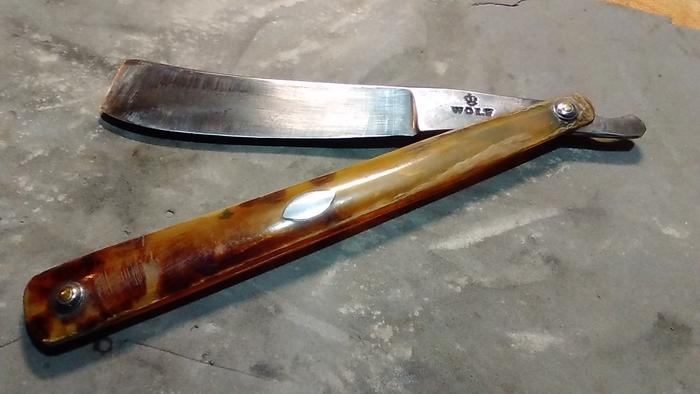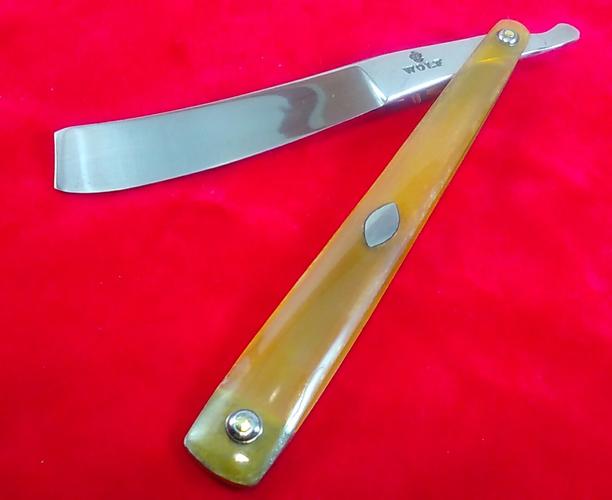Results 1 to 10 of 11
Hybrid View
-
02-02-2019, 01:29 AM #1Member

- Join Date
- Aug 2016
- Location
- Easton, MA
- Posts
- 55
Thanked: 0 I want to start learning restoration
I want to start learning restoration
I want to learn to start restoring and honing.
I have a variety of hand tools, the only power tools are a drill and a dremel.
I have temporary access to a CNC, mill, lathe, and 3d printer so if I need to custom make a tool now is the time.
I have a full set of hones so I'm set there.
First question what tools do I need to get or make?
Second question are there any good video's of the process out there?
Thanks in advance.
-
02-02-2019, 02:18 AM #2

Hi,
A good place to start iss our Library of answers!
Shave_Library
Have fun!
~RichardBe yourself; everyone else is already taken.
- Oscar Wilde
-
The Following User Says Thank You to Geezer For This Useful Post:
formernuke (02-02-2019)
-
02-02-2019, 02:46 AM #3Member

- Join Date
- Aug 2016
- Location
- Easton, MA
- Posts
- 55
Thanked: 0
-
02-02-2019, 08:06 AM #4

I would make something that fits your hand well and has something that seems right to you for getting in the hollows, and also make a couple extra blanks so as you get into it you can shape some more for whatever you run into. Hand sanding is pretty tiring work if what you use takes a lot of effort to hold onto.
-
02-02-2019, 01:27 PM #5

Its a long read, but if you look thru the workshop thread "What are you working on". And " Butchered Blade". There's tons of how does with what.
You'll see, most are just clean-ups, more than total restorations. And that's about what 90% are worth doing.
Though there are some worth making look new, again
As for sanding, I like using erasers for pencil lead.
They have a bit of flex for contouring the blade face, others like to use corks n such.
I'm a big fan of the dremmel, but limit its use to certain tasks. They are very dangerous for an untrained hand, or those that throw caution to the wind.
If you look into the library, these a section on hand sanding, with pictures. Also there is a section on making a magnetic blade holder, which is a must have for restoring.
Needed tools vary from each person, but averages call for steel wool, ( 000&0000). WD-40, wet/dry sandpaper from 320-2500 grit, metal polishes like Never Dull, Maas, Flitz, and my favorite, 3M. Metal restorer/polish.
The most used tool, would be the one between your ears.
When in doubt, ask on the forum, we'll help ya out.
Its a lot of work to restore some, but the rewards can be great, in return for your patience and time.
Learn on cheap, low end razors to build up your abilities, and knowledge, before going full boar on good razors.
Wedges typically give you better returns for your efforts, only because they offer more metal that can be removed.
Being able to look at a blade, and judge its worth for restoring, before buying, is paramount. If its junk, its always gonna be junk, no matter how pretty it looks.
Its just lipstick on a pig.
But in part.. Always start with the least evasive method, first, before progressing to the next.
( polish before steel wool, steel wool before sandpaper. Ect.)
All can be done without power tools, if you can give um time and patience. Like this one I finished recently


Look forward to seeing you in the workshop, there's a good group of guys there that can help.
Its where I got most of my knowledge, and help. Mike
Mike
-
The Following 4 Users Say Thank You to outback For This Useful Post:
formernuke (02-02-2019), Geezer (02-02-2019), MikeT (02-02-2019), RezDog (02-02-2019)
-
02-02-2019, 02:06 PM #6Member

- Join Date
- Aug 2016
- Location
- Easton, MA
- Posts
- 55
Thanked: 0
I was going to post pics of the ones I got to learn on but I cant get them uploaded


 24Likes
24Likes LinkBack URL
LinkBack URL About LinkBacks
About LinkBacks






 Reply With Quote
Reply With Quote



